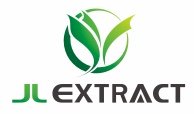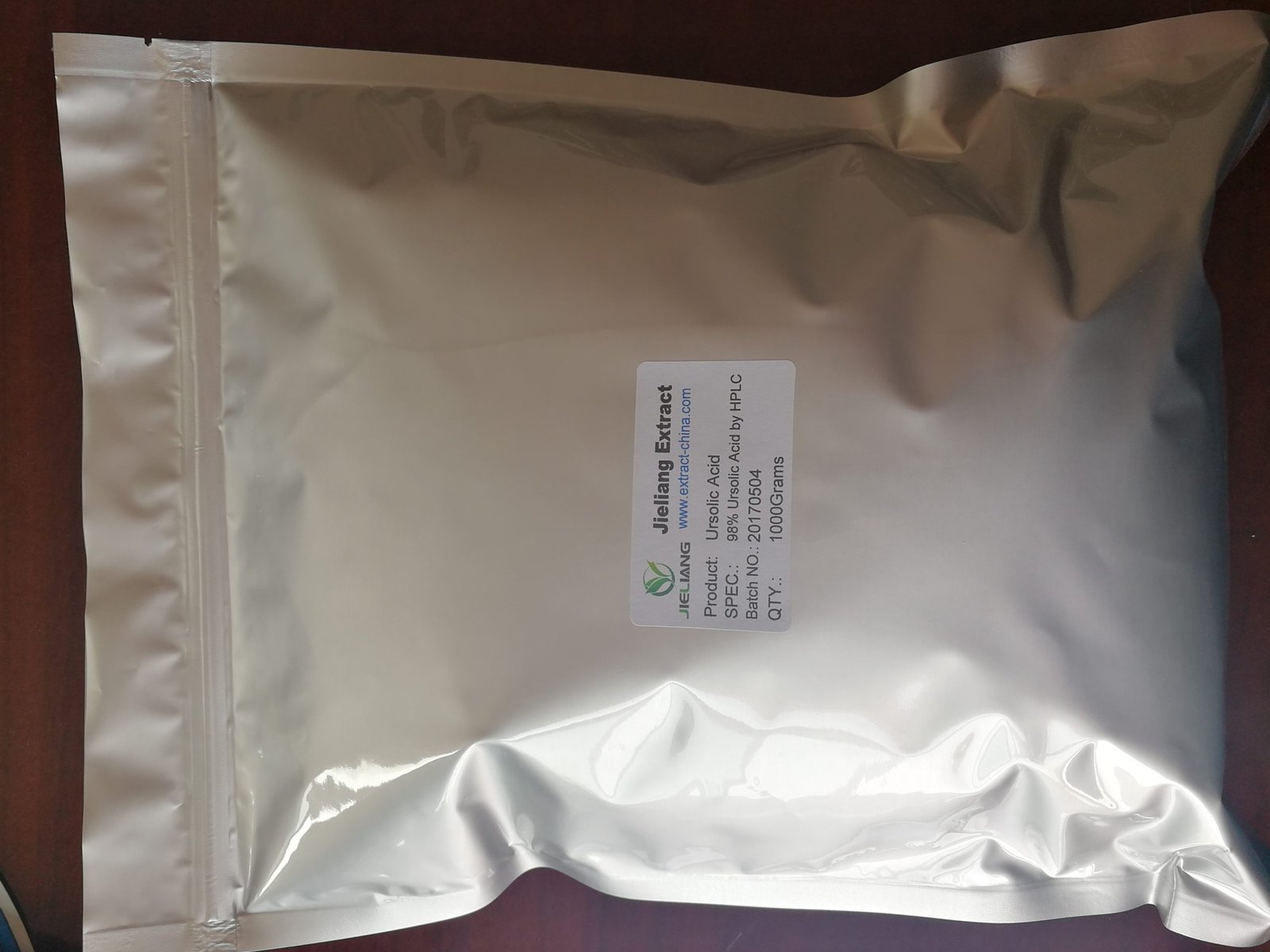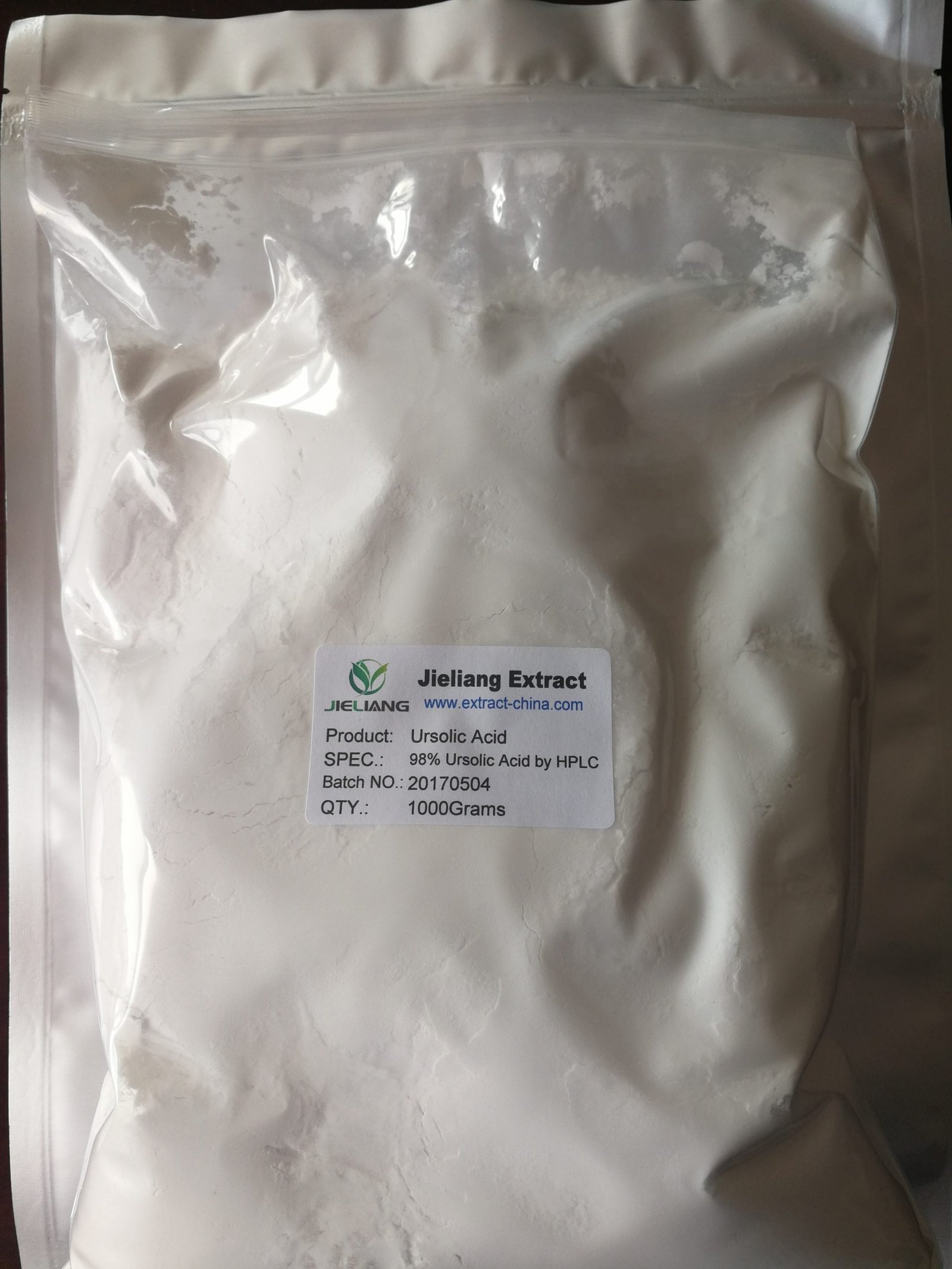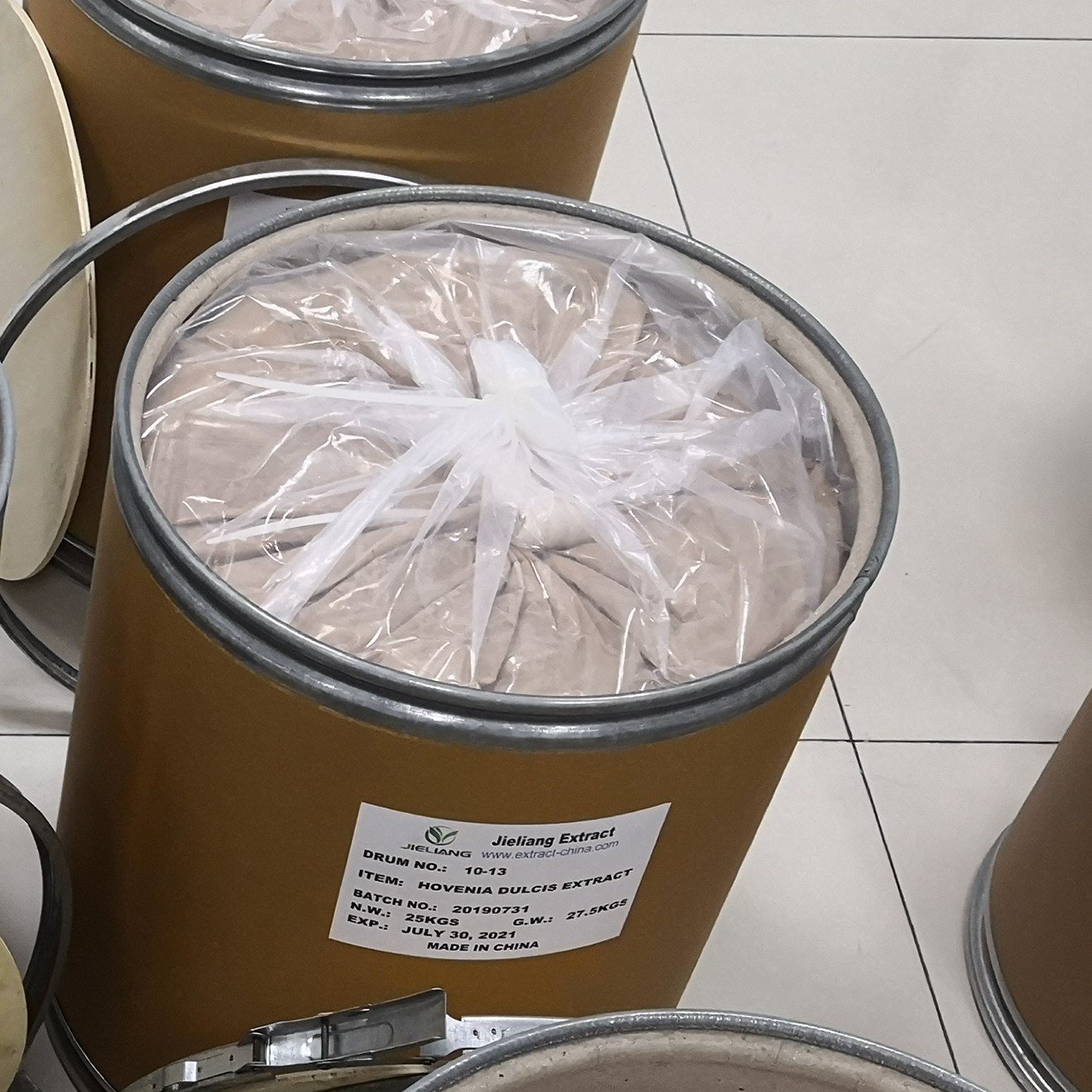INTRODUCTION
Ursolic Acid (CAS No.: 77-52-1, C30H48O3) Ursolic acid (sometimes referred to as urson, prunol, malol, or 3β-hydroxyurs-12-en-28-oic acid), is a pentacyclic triterpenoid widely found in the peels of fruits, as well as in herbs and spices like rosemary and thyme.
APPLICATION
Ursolic acid, a pentacyclic triterpenoid found in plants like apples, rosemary, and holy basil, is valued for its diverse pharmacological properties. Its primary uses are outlined below in order:
-
Anti-inflammatory Applications: Ursolic acid exhibits potent anti-inflammatory effects by inhibiting pro-inflammatory cytokines and enzymes like COX-2. It is used in supplements and topical formulations to alleviate inflammation-related conditions, such as arthritis and skin irritations.
-
Anticancer Potential: Ursolic acid shows promise in cancer research due to its ability to induce apoptosis, inhibit cell proliferation, and suppress tumor growth in cancers like breast, lung, and colon. It modulates pathways such as NF-κB and STAT3, making it a candidate for adjuvant therapies, though clinical applications require further study.
-
Muscle Growth and Fat Loss: Ursolic acid promotes muscle growth and reduces fat accumulation by enhancing insulin signaling and inhibiting atrophy-related genes. It is popular in sports supplements to support muscle recovery, improve body composition, and enhance exercise performance.
-
Antioxidant and Anti-aging Effects: As an antioxidant, ursolic acid neutralizes free radicals, protecting cells from oxidative stress. It is used in cosmetics and skincare products to reduce signs of aging, improve skin elasticity, and protect against UV-induced damage.
-
Metabolic Health Support: Ursolic acid aids in managing metabolic disorders like diabetes and obesity by improving glucose metabolism and reducing lipid accumulation. It is included in dietary supplements to support blood sugar regulation and cardiovascular health.
While ursolic acid is generally safe, its low bioavailability necessitates advanced delivery systems for optimal efficacy. Further research is needed to standardize dosages and confirm clinical benefits.
CERTIFICATE OF ANALYSIS AND FINGERPRINT CHROMATOGRAPH
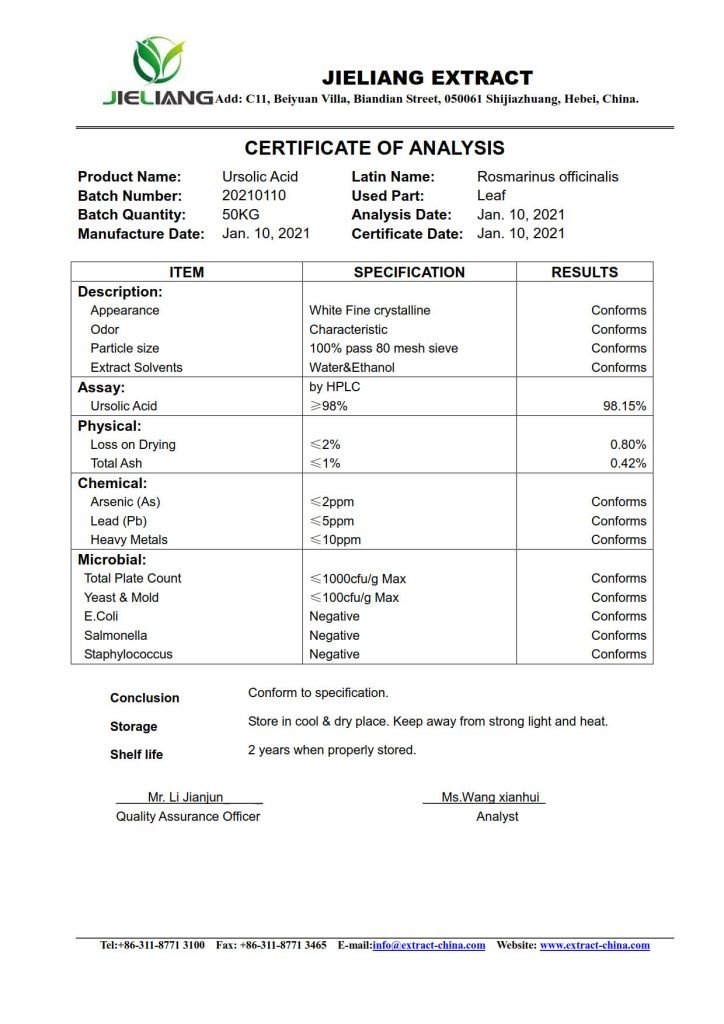
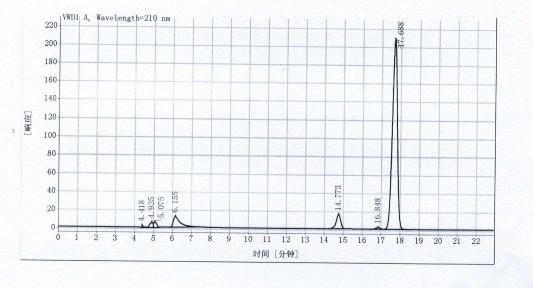
CERTIFICATE OF ANALYSIS
| Product Name: |
Ursolic Acid |
Latin Name: |
Rosmarinus officinalis |
| Batch Number: |
20210110 |
Used Part: |
Leaf |
| Batch Quantity: |
50KG |
Analysis Date: |
Jan. 10, 2021 |
| Manufacture Date: |
Jan. 10, 2021 |
Certificate Date: |
Jan. 10, 2021 |
| ITEM |
SPECIFICATION |
RESULTS |
| Description:
Appearance
Odor
Particle size
Extract Solvents |
White Fine crystalline
Characteristic
100% pass 80 mesh sieve
Water&Ethanol |
Conforms
Conforms
Conforms
Conforms |
| Assay:
Ursolic Acid |
by HPLC
≥98% |
98.15% |
| Physical:
Loss on Drying
Total Ash |
≤2%
≤1% |
0.80%
0.42% |
| Chemical:
Arsenic (As)
Lead (Pb)
Heavy Metals |
≤2ppm
≤5ppm
≤10ppm |
Conforms
Conforms
Conforms |
| Microbial:
Total Plate Count
Yeast & Mold
E.Coli
Salmonella
Staphylococcus |
≤1000cfu/g Max
≤100cfu/g Max
Negative
Negative
Negative |
Conforms
Conforms
Conforms
Conforms
Conforms |
| Conclusion |
Conform to specification. |
| Storage |
Store in cool & dry place. Keep away from strong light and heat. |
| Shelf life |
2 years when properly stored. |


